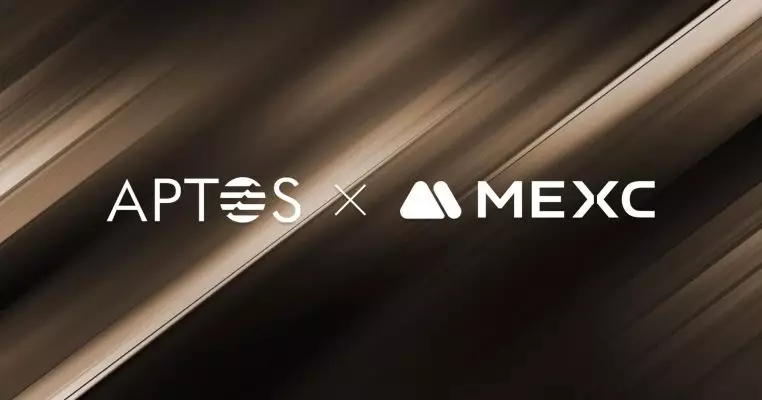Table of contents
In the crypto industry, privacy and security are non-negotiable. Privacy and security are paramount, and compromise is simply not an option. This understanding forms the foundation of every decision made by crypto enthusiasts.
The highly acclaimed Ledger hardware wallet, once revered as a market leader, has recently faced controversy, raising doubts about its integrity. To help you navigate the changing landscape, we have conducted extensive research to identify trustworthy alternatives.
This article presents the top 5 Ledger alternatives for secure crypto storage in 2023.
What are Ledger Wallets?

Ledger Wallets, crafted by the renowned Paris-based company Ledger, is a secure and user-friendly hardware wallet for storing and managing cryptocurrencies. Complementing its headquarters in the artistic hub of Paris, Ledger has established a presence in the innovation-driven city of San Francisco, California.
Spearheaded in 2014 by a proficient team of eight accomplished individuals with expertise in embedded security, cryptocurrencies, and entrepreneurial endeavors, Ledger works to forge impregnable solutions for blockchain applications.
The Ledger hardware wallets act as a personal vault, keeping cryptocurrencies safe from online threats like hackers and malware.
What sets Ledger Wallet apart is its innovative and intuitive design. The wallets are thoughtfully crafted to provide a seamless user experience, even for those new to crypto. With Ledger Wallet, you don’t need to be a tech expert to manage your digital assets securely. Its user-friendly interface and straightforward setup process make it accessible to everyone, ensuring that anyone can safeguard their cryptocurrencies with ease.
Ledger Wallet supports many cryptocurrencies, including Bitcoin, Ethereum, Solana, etc.
Related to Ledger Wallets, it’s not just about security and functionality — Ledger Wallet also values privacy. The company employs state-of-the-art encryption techniques to keep users’ sensitive information confidential. Your private keys are securely stored within the hardware wallet, keeping them offline and away from prying eyes; in other words, Ledger is a non-custodial cold wallet.
The Controversy Created by Ledger
Ledger Wallet Firmware Update
Ledger Wallet recently introduced a controversial service that has sparked debate within the crypto community, a firmware version 2.2.1. This service aims to assist users in recovering lost or forgotten recovery phrases, which are vital for accessing their crypto assets. However, concerns have been raised regarding the security and privacy implications associated with this offering.
According to Ledger Wallet, the service is designed with safety and security in mind. The recovery phrase is encrypted and stored in a fragmented manner by multiple parties. Further, users must verify their identity before proceeding with the recovery process. Ledger Wallet asserts that the service primarily aims to aid users without alternative means of accessing their funds.
Although Ledger may have had good intentions, their approach to addressing this situation has taken an unexpected turn. The ability to recover a seed phrase has ignited controversy and generated widespread concern and outrage.
Some experts and crypto enthusiasts have criticized it, asserting that this service undermines the fundamental principles of self-custody and decentralization. They argue that it exposes users to hacking, phishing, and social engineering attacks.
Moreover, there are concerns that this service could instill a false sense of security among users, potentially leading to careless handling of recovery phrases. In response, some users have suggested that Ledger Wallet should prioritize educating users on proper storage and backup methods for recovery phrases, and also some users have started looking for alternatives to Ledger.
This subscription service for Ledger’s seed phrase recovery feature is limited to Ledger Nano X devices.
Ledger’s Reputation Spoiled by Previous Breaches
Ledger’s introduction of the new feature has ignited strong criticism from the community, fueled partly by the company’s troubled history with data security. Previous incidents of security breaches still linger in the community’s memory, eroding trust in Ledger.
One notable breach occurred in July 2020 when the physical addresses of 270,000 Ledger owners were compromised. The stolen data was subsequently shared on a forum, leading to targeted extortion attempts against the victims. Despite Ledger’s assurances that the breached data was not linked to wallet funds, the incident significantly impacted the community’s confidence in the company.
The “Stylish” Necklace Controversy
Also recently, in April 2023, Ledger has been subject to various controversies and ongoing criticisms regarding releasing a “stylish” necklace designed for its cold wallet, the Nano X OnChain bundle. However, the community heavily criticized this accessory, as they deemed it unnecessary and potentially risky, as it could attract thieves.
Wearing a cold wallet around one’s neck and taking it outside received intense backlash. Although Ledger defended the product by emphasizing that it does not provide full access to users’ wealth, this response did little to alleviate the concerns raised by the community.
Top 5 Ledger Alternatives
If you find yourself uneasy with the current trajectory of Ledger, there’s no need to worry. There are alternative hardware options available in the market.
In this article related to top Ledger alternatives, we have curated a collection of top-tier wallets that meet the stringent criteria set by Ledger and serve as excellent alternatives. These wallets share the following key features with Ledger, ensuring they are reliable options for hardware wallet enthusiasts:
- Hardware Wallet – Each alternative functions as a secure hardware wallet, providing an extra layer of protection for your digital assets.
- Cold Storage – Just like Ledger, these wallets employ the concept of cold storage, keeping your private keys offline and safeguarded from potential online threats.
- Non-Custodial – These wallets adhere to the non-custodial approach, granting you complete control over your funds and eliminating the need to trust a third party with your assets.
Below, we present you with a selection of robust alternatives to Ledger wallets worth considering:
1. Trezor

Trezor is our best Ledger alternative, being one of the leading hardware wallet options and offering a secure storage solution for your cryptocurrencies. Its primary objective is to safeguard your private keys and minimize online exposure by utilizing the device and a web-based app as the wallet interface.
As a prominent alternative to Ledger wallets, Trezor maintains its traditional approach to hardware wallet setups. It includes standard key pair initialization, recovery seed generation, a two-interface transaction signing system, and the PIN-Passphrase combination for enhanced security measures.
Trezor’s open-source software sets it apart, allowing for community-driven contributions and greater transparency. Besides, the setup and usage of Trezor wallets do not require legacy user registrations using identification, making them more accessible and privacy oriented.
Regarding hardware, Trezor employs the STM32 microcontroller, open to community-based audits, while Ledger uses the Secure Element chip, a closed-source security implementation requiring specific agreements.
Trezor Pros
- Open-source wallet with firmware and software contributions from the community;
- Its built-in security module utilizes a single microcontroller, offering a streamlined and efficient design;
- Supports a vast array of cryptocurrencies (close to 1500 digital assets with some Trezor models).
Trezor Cons
- Lacks built-in app or Bluetooth support;
- Does not actively support staking functionalities;
- Does not offer direct management of non-fungible tokens (NFTs).
2. SafePal

SafePal is a hardware wallet designed to provide a secure, anonymous solution for storing and managing digital assets. SafePal also has a software wallet solution integrated. Developed with the support of Binance, SafePal offers a dynamic interface and an array of features tailored to meet the needs of crypto enthusiasts.
The management of all SafePal products is facilitated through the SafePal app, which serves as a centralized hub for crypto storage and transactions.
Regarding wallet functionality, SafePal simplifies the process by generating a pool of keys upon activation. Users are still required to note down the recovery seed for added security. Transactions are conducted offline using QR code scanning, minimizing the risk of online threats. Furthermore, SafePal retains the PIN-passphrase combination for enhanced protection.
With long-lasting battery life and no reliance on USB, WiFi, or Bluetooth connectivity, SafePal prioritizes security. The wallet minimizes the risk of remote attacks and unauthorized access by eliminating the need for wireless connections.
SafePal supports many coins and tokens, including popular cryptocurrencies like Bitcoin, Ethereum, and Dogecoin.
The SafePal Wallet is approximately $50 and includes a leather case for protection. Moreover, it comes equipped with a Cypher Seed Protection board, further enhancing the security of your mnemonic phrases and safeguarding your assets.
SafePal Pros
- Affordable wallet solution;
- Anti-malware self-destruct feature;
- Multi-layer security;
- Provides compatibility with other leading hardware wallets.
SafePal Cons
- Reliance on QR codes for usage may be slightly cumbersome for some users;
- Basic plastic construction;
- Not an open-source wallet.
3. NGRAVE

NGRAVE can be considered a newcomer in the industry, but definitely, it’s a great one. They introduced their innovative line of wallets in 2020. One of their standout products is the NGRAVE ZERO, which prides itself on being the “coldest” wallet ever created. This wallet prioritizes security by completely disconnecting from the internet, Bluetooth, and other potential vulnerabilities. Instead, it relies on a QR-code approach and a dedicated mobile app capable of processing offline transactions.
As a popular alternative to Ledger wallets, NGRAVE offers several noteworthy advantages. The device itself resembles a military-grade mobile, exuding a sense of robustness and reliability. Moreover, NGRAVE ZERO is the first wallet to receive the prestigious EAL7 certification, demonstrating its commitment to top-notch security. It incorporates a built-in ARM TrustZone, an integrity verifier constantly scanning for potential threats.
Another feature that sets NGRAVE apart is the NGRave Perfect Key, a cutting-edge technology that generates private keys securely.
Moreover, NGRAVE wallets can operate independently without physical connections or internet access. The wallet’s app only connects to the internet when users broadcast transactions to the blockchain.
Unlike Ledger’s cloud-based seed phrase backup option introduced through the “Recover” update, NGRAVE takes a physical approach. With NGRAVE Graphene, the wallet employs steel plates and hole patterns to securely store seed phrases offline, eliminating any reliance on cloud services.
NGRAVE Pros
- Enhanced security through air-gapping;
- Touchscreen with both appealing design and practical functionality;
- Software rated EAL7 for increased assurance;
- Resistant to tampering, dust, and water damage.
NGRAVE Cons
- Positioned in the premium price range;
- The NGrave Liquid mobile app is necessary for conducting blockchain transactions.
4. KeepKey

When exploring the best alternatives to Ledger wallets, KeepKey is an exceptional choice that deserves attention. Developed by ShapeShift, a renowned crypto-to-crypto exchange, KeepKey offers a comprehensive hardware wallet solution with advanced features.
KeepKey handles key generation, storage, and transaction verification, ensuring all-out security for your digital assets. Its secure interface enables seamless communication with your computer while keeping your cryptocurrencies offline and protected on the device.
This hardware wallet supports many top cryptocurrencies, ERC20 tokens, and even popular coins like Solana, Cardano, or Dogecoin. You can conveniently store and manage multiple assets within the KeepKey wallet.
One notable advantage of KeepKey is its seamless integration with ShapeShift. This integration allows direct asset trading and purchasing within the KeepKey device, offering a streamlined and convenient user experience.
With its large display, KeepKey stands out among other hardware wallets, providing enhanced visibility and ease of use. The device is fortified against viruses, malware, and hacker attacks, ensuring the security of your funds. Further, it boasts multiple layers of protection, including PIN security, a 12-word mnemonic recovery phrase, and tamper-proof firmware.
KeepKey Pros
- Offers a simplified user interface with a sleek and well-crafted OLED display, making it easy to navigate and interact with the device;
- Wide range of cryptocurrencies;
- Implements multiple layers of security to protect users’ funds and private information, providing peace of mind for cryptocurrency holders;
- Attractive price.
KeepKey Cons
- No Bluetooth support;
- Don’t offer support for NFTs;
- Additional software requirement. Unlike some other wallets, KeepKey does not have a web wallet feature. Therefore, users need to download and install additional software, such as Electrum or MultiBit, to utilize the wallet’s applications;
- Less portability. Due to its larger size, KeepKey is less portable compared to alternatives like Trezor.
5. ELLIPAL

The final spot is perfect if you’re searching for an air-gapped solution to store your cryptocurrency in 2023 securely. This hardware wallet boasts extensive coin support, ensuring compatibility with various cryptocurrencies. Besides, it is designed to be dustproof and waterproof, with an anti-tamper feature that erases all private keys in case of a physical breach.
What sets ELLIPAL apart is its complete network isolation, relying solely on QR codes for data transfers. It deliberately avoids any USB, WiFi, or Bluetooth connections, effectively shielding your crypto assets from remote and network-based attacks.
ELLIPAL effectively supports a remarkable 52 blockchains and over 10,000 cryptocurrencies, with new additions regularly.
Another aspect to note is that the wallet does not provide access to Xpub keys, limiting its compatibility with certain apps and restricting “view only” wallets. This could be a significant drawback for users who rely on Xpub for crypto payment gateways in e-commerce transactions.
Also, the ELLIPAL wallet generates a 12-word seed phrase by default, which some security-conscious users may find less secure than a 24-word phrase. However, it is possible to import a 24-word phrase for enhanced security. The wallet lacks support for testnet coins across blockchain networks and cannot add custom RPC, which may disappoint users interested in testing networks and coins.
ELLIPAL Pros
- Air-gapped solution;
- Extensive coin support, compatible with a wide range of cryptocurrencies;
- Complete network isolation using QR codes, protecting against remote and network attacks;
ELLIPAL Cons
- It’s relatively expensive;
- Limited third-party support.
FAQ
What is a Crypto Wallet?
A crypto wallet is a hardware and/or software tool that allows individuals to securely store, manage, and transact with their cryptocurrencies, such as Bitcoin or Ethereum. It enables users to access their digital assets by providing a unique private key, which is essential for authorizing blockchain transactions.
What are the Ledger Wallet Alternatives?
The best alternatives for Ledger are Trezor, SafePal, NGRAVE, KeepKey, and ELLIPAL. Of course, all of these are, like Ledger, non-custodial hardware wallets.
Is Ledger the Best Wallet?
Considering the fierce competition in this rapidly evolving market, it would be unfair to label Ledger as the ultimate crypto wallet provider for self-custody. Nevertheless, for several reasons, Ledger has garnered a strong reputation as a preferred wallet option. It stands out for its comprehensive features, including direct staking capabilities, support for NFTs, and compatibility with over 5,500 cryptocurrencies spanning multiple blockchain networks. However, recent criticisms aimed at Ledger, particularly regarding its ID-based registration for cloud-based seed phrase recovery, have prompted individuals within the crypto community to explore alternative wallet solutions. Trezor and SafePal have emerged as popular choices for those seeking alternatives to Ledger.
Is MetaMask Wallet Better Than Ledger?
MetaMask and Ledger represent distinct types of self-custody crypto wallets. MetaMask operates as a software wallet that relies on internet connectivity, offering flexibility and accessibility. On the other hand, Ledger serves as a cold storage solution and caters to long-term holders.
However, Ledger has recently faced substantial criticism, primarily concerning its “Recover” feature, which emphasizes cloud-based seed phrase recovery. As a result, specific segments of the crypto community may find MetaMask a more appealing alternative. It is worth noting that ConsenSys, the parent company of MetaMask, also encountered privacy concerns earlier in 2023.
Yet, the choice between MetaMask and Ledger hinges on individual preferences and priorities, with MetaMask providing a user-friendly online wallet experience and Ledger offering enhanced security for long-term storage.
What is an Air Gap Crypto Wallet?
Air gap refers to a wallet that lacks online connectivity, minimizing the risk of remote exploitation by hackers. It is often used interchangeably with “cold storage,” indicating that the device is isolated from any network connection. While these wallets can be charged using a USB connection, the charging process does not provide access to the wallet’s private keys. This ensures an extra layer of security for the user’s cryptocurrency assets.
Final Thoughts
Ledger continues to hold its position as a market leader in hardware self-custody crypto wallets. But with all these recent leaks, it’s hard to say for how long it will last. As the company moves towards a more centralized approach in 2023, exploring Ledger wallet alternatives becomes sensible.
From enhanced security measures to user-friendly interfaces and innovative designs, these alternatives provide compelling solutions for safeguarding your valuable crypto assets.
Remember, choosing the right wallet is a crucial decision that directly impacts the privacy and security of your digital wealth. It’s essential to evaluate your priorities, such as security features, user experience, coin compatibility, and ease of use when selecting an alternative to Ledger.


